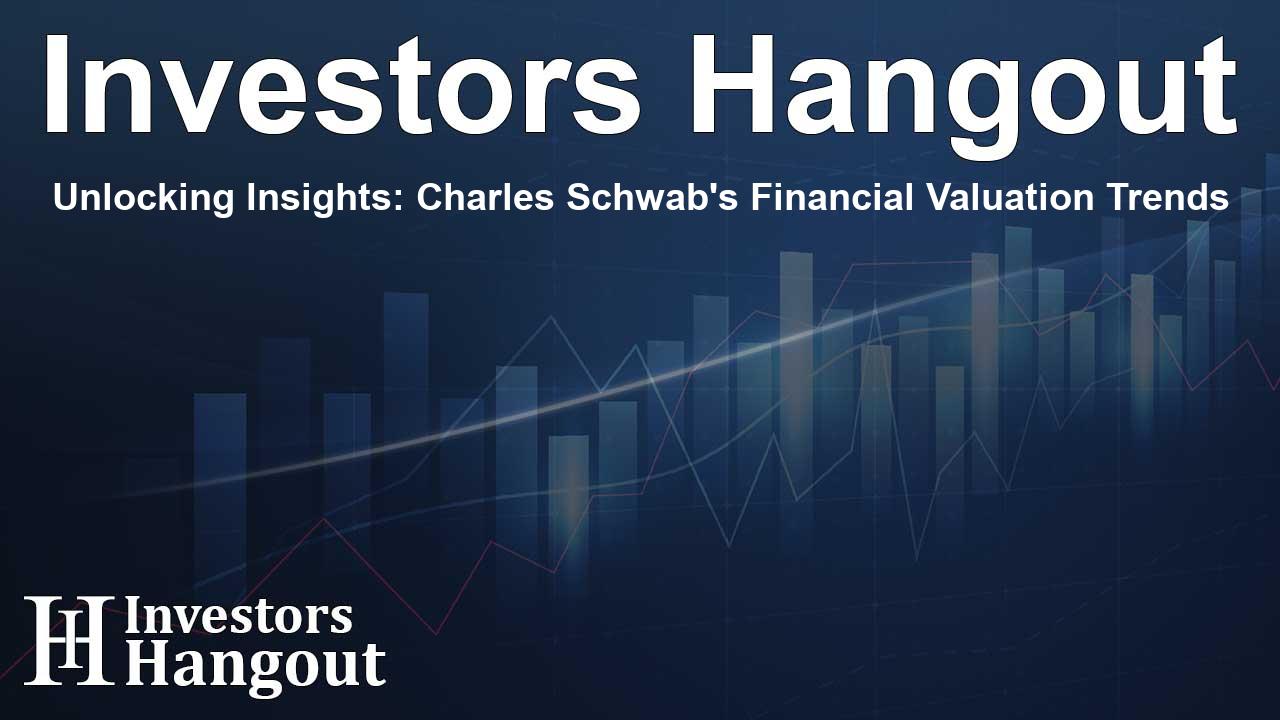Unlocking Insights: Charles Schwab's Financial Valuation Trends

Understanding Charles Schwab's Stock Performance
Currently, the stock price of Charles Schwab Inc. (NYSE:SCHW) is positioned at $94.31, reflecting a recent decline of 0.82%. Nevertheless, for shareholders observing the company over a longer time span, the past month has seen a rise of 2.10%, and over the year, the stock impressively increased by 29.92%. Investors may question the stock's valuation and its performance against the backdrop of recent fluctuations.
The Significance of the Price-to-Earnings (P/E) Ratio
The P/E ratio serves as a critical gauge for long-term shareholders to evaluate a company's market standing in relation to broader market data, historical earnings, and competitive dynamics within the industry. A lower P/E can suggest that investors expect less growth from the stock, but this could also indicate that the stock is undervalued.
Charles Schwab’s P/E in Context
When we delve into the specifics, we find that Charles Schwab's P/E ratio is below the industry average of 28.14 for the Capital Markets sector. This disparity raises questions: does this mean the stock is unlikely to perform as well as its competitors, or is it signifying an opportunity for value investing?
Interpreting the Implications
While a lower P/E can point to potential undervaluation, it may also highlight investors' muted expectations for future growth. It is essential for investors to recognize that the P/E ratio is just one piece of the puzzle.
Exploring Broader Financial Metrics
To make comprehensive investment decisions, it is vital to consider additional financial metrics alongside the P/E ratio. Factors like the current business cycle, industry trends, and overall market conditions also play significant roles in affecting stock price movements.
Using Qualitative Analysis
Alongside quantitative metrics, integrating qualitative analysis is crucial. Understanding market conditions, company news, and economic forecasts can provide deeper insights that numbers alone might obscure. Every investor should leverage both types of analysis to gain a well-rounded perspective on equity performance.
Final Thoughts on Investing in Charles Schwab
In summary, while the P/E ratio remains a popular tool among investors for analyzing market performance, it should not be viewed in isolation. A deeper analysis that includes qualitative factors and wider financial perspectives will provide a clearer picture of Charles Schwab’s position in the market. Making informed decisions requires a balanced approach that considers both historical performance and future potential.
Frequently Asked Questions
What is the current price of Charles Schwab stock?
The current price of Charles Schwab stock is $94.31.
How does the P/E ratio of Charles Schwab compare to its industry?
Charles Schwab has a lower P/E ratio than the industry average of 28.14, suggesting potential undervaluation.
How has Charles Schwab's stock performed in the past year?
In the past year, Charles Schwab's stock has increased by 29.92%.
Why is the P/E ratio important for investors?
The P/E ratio helps investors gauge market expectations and potential stock performance against earnings.
What additional factors should be considered alongside the P/E ratio?
Investors should consider industry trends, business cycles, and qualitative factors for a comprehensive analysis.
About The Author
Contact Ryan Hughes privately here. Or send an email with ATTN: Ryan Hughes as the subject to contact@investorshangout.com.
About Investors Hangout
Investors Hangout is a leading online stock forum for financial discussion and learning, offering a wide range of free tools and resources. It draws in traders of all levels, who exchange market knowledge, investigate trading tactics, and keep an eye on industry developments in real time. Featuring financial articles, stock message boards, quotes, charts, company profiles, and live news updates. Through cooperative learning and a wealth of informational resources, it helps users from novices creating their first portfolios to experts honing their techniques. Join Investors Hangout today: https://investorshangout.com/
The content of this article is based on factual, publicly available information and does not represent legal, financial, or investment advice. Investors Hangout does not offer financial advice, and the author is not a licensed financial advisor. Consult a qualified advisor before making any financial or investment decisions based on this article. This article should not be considered advice to purchase, sell, or hold any securities or other investments. If any of the material provided here is inaccurate, please contact us for corrections.
